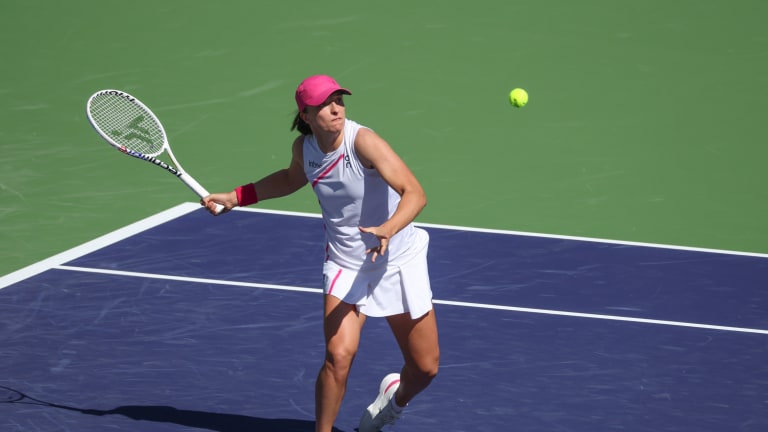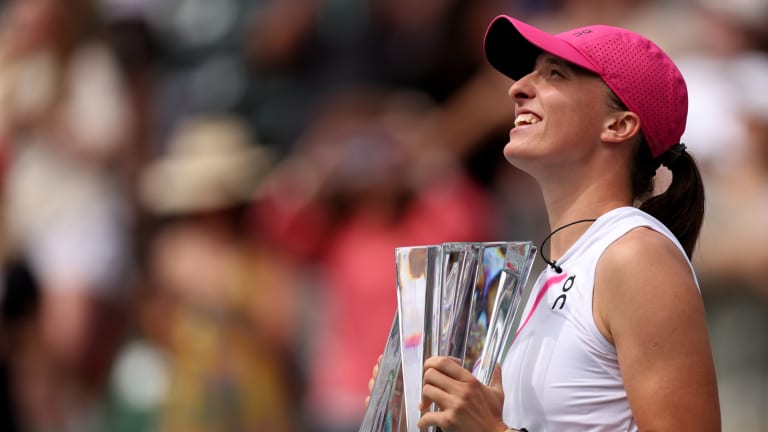Miami, USA
Iga Swiatek: Great with a capital “G”
By Mar 21, 2024Miami, USA
In beating idol Novak Djokovic, Jakub Mensik came of age in Miami
By Mar 31, 2025Miami, USA
Can Jessica Pegula step out of comfort zone on clay?
By Mar 31, 2025Miami, USA
Jakub Mensik, Miami champion, was going to pull out of the tournament an hour before his first match
Mar 31, 2025Miami, USA
Teenager Jakub Mensik denies Novak Djokovic 100th title in Miami Open upset
By Mar 31, 2025Miami, USA
Aryna Sabalenka takes aim at Iga Swiatek's dominance of the European clay season
By Mar 31, 2025Miami, USA
Novak Djokovic vs. Jakub Mensik: Where to watch, and who will win, their Miami Open final
By Mar 30, 2025Miami, USA
Roger Goodell watches on as Aryna Sabalenka defeats Jessica Pegula in Miami final
By Mar 29, 2025Miami, USA
Aryna Sabalenka masters Jessica Pegula again to win Miami Open
By Mar 29, 2025Miami, USA
19-year-old Jakub Mensik to face Novak Djokovic in Miami Open final
By Mar 29, 2025Iga Swiatek: Great with a capital “G”
The 22-year-old is on the cusp of becoming one of the towering Grand Slam champions of the present era—while still flying well under the radar.
Published Mar 21, 2024
Advertising
!["I'm pretty proud of the way I adapted to all these challenges that I had to face," says Swiatek. "First becoming world No. 1, then actually feeling comfortable with it, and using it on court [while] being the target of many players that wanted to beat—particularly, me."](https://images.tennis.com/image/private/t_16-9_768/f_auto/tenniscom-prd/iw6drf2ju7pjkprxhqaa.jpg)
"I'm pretty proud of the way I adapted to all these challenges that I had to face," says Swiatek. "First becoming world No. 1, then actually feeling comfortable with it, and using it on court [while] being the target of many players that wanted to beat—particularly, me."
© 2024 Robert Prange
Advertising

Swiatek hasn’t yielded any ground since her rise began 2020. If anything, she has improved in every dimension of her game.
© Icon Sportswire via Getty Images
Advertising
Advertising

Swiatek is the 10th woman to win in Indian Wells twice. No woman has won three times.
© 2024 Getty Images